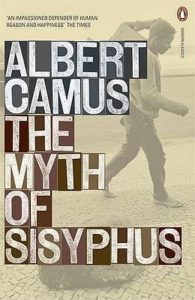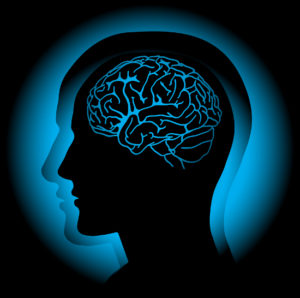From The New York Times, book reviewer and best-selling author Andrew Solomon writes, “Not so long ago, the mere fact of writing that you had suffered from depression conferred a badge of courage, but such confessions have devolved into a dull mark of solipsistic forthrightness. Famous people use such disclosures to persuade you that they are just like you, perhaps even more vulnerable; it’s a way of compensating for the discomfort attached to their glamor. Indeed, in an increasingly stratified world, people with any modicum of privilege may reveal their depression as an assertion of their common humanity. Clinical misery has taken over from death as the great equalizer. Vanity of vanities, all is depression. Into this morass daringly comes Daphne Merkin with the long-awaited chronicle of her own consuming despair, ‘This Close to Happiness: A Reckoning with Depression.'” Read the entire article here.
Diving Into Hell: A Powerful Memoir of Depression
Changing Is Hard
A Canadian blogger by the name of Michelle (no last name given) writes, “Changing is hard. Okay, lots of things are hard when you’re depressed. Getting up in the morning. Finding the energy to do everyday tasks. Looking for the will to go on. You know, all that good stuff. But changing yourself and your thoughts is especially hard.It’s a strange battle, isn’t it? Often, you know what you ought to do or have to do. And often, you just can’t seem to summon up the will to do it.” Read her entire blog here.
Coming to Terms With Depression
In her new memoir, This Close to Happy, Daphne Merkin writes about how she’s made her way through life, not despite, but with depression. She tells NPR’s Scott Simon that sometimes she just has to push herself through bad days. “At really bad times, I will admit I don’t get up,” she says. “I sort of languish, or sleep. But mostly I try and combat it by assertions of will. Which is not the same as saying, ‘Pull yourself up by your bootstraps,’ though … there’s a point at which these assertions of will don’t help. But otherwise, I think there’s a way of negotiating depression, like, talking to it. Saying, ‘you can do this, you’ll be OK, try going outside, try sitting at your desk.’ You know, kind of coaxing oneself.” Listen to the interview here.
On Depression, Hope, Hopelessness, and Freedom
Hope is a desire for something combined with an anticipation of it happening, it is the anticipation of something desired. To hope for something is to make a claim about something’s significance to us, and so to make a claim about ourselves.
One opposite of hope is fear, which is the desire for something not to happen combined with an anticipation of it happening. Inherent in every hope is a fear, and in every fear a hope. Other opposites of hope are hopelessness and despair, which is an agitated form of hopelessness.
Hope is often symbolized by harbingers of spring such as the swallow, and there is a saying that ‘there is no life without hope’. Hope is an expression of confidence in life, and the basis for more practical dispositions such as patience, determination, and courage. It provides us not only with aims but also with the motivation to attain those aims. As the theologian, Martin Luther said, ‘Everything that is done in the world is done by hope.’ Hope not only looks to the future but also makes present hardship easier to bear, sustaining us through our winters.
At a deeper level, hope links our present to our past and future, providing us with an overarching narrative that lends shape and meaning to our life. Our hopes are the strands that run through our life, defining our struggles, our successes and setbacks, our strengths and shortcomings, and in some sense ennobling them. Running with this idea, our hopes, though profoundly human—because only humans can project themselves into the distant future—also connect us with something much greater than ourselves, a cosmic life force that moves in us as it does in all of nature. Conversely, hopelessness is both a cause and a symptom of depression, and, in the context of depression, a strong predictor of suicide. “What do you hope for out of life?” is one of my most important questions as a psychiatrist, and if my patient replies “nothing” I have to take that very seriously.
Hope is pleasant in so far as the anticipation of a desire is pleasant. But hope is also painful, because the desired circumstance is not yet at hand, and, moreover, may never be at hand. Whereas realistic or reasonable hopes are more likely to lift us up and move us on, false hopes are more likely to prolong our torment, leading to inevitable frustration, disappointment, and resentment. The pain of harboring hopes, and the greater pain of having them dashed explains why most people tend to be modest in their hoping.
In his essay of 1942, The Myth of Sisyphus, the philosopher Albert Camus compares the human condition to the plight of Sisyphus, a mythological king of Ephyra who was punished for his chronic deceitfulness by being made to repeat forever the same meaningless task of pushing a boulder up a mountain, only to see it roll back down again. Camus concludes, ‘The struggle to the top is itself enough to fill a man’s heart. One must imagine Sisyphus happy.’
Even in a state of utter hopelessness, Sisyphus can still be happy. Indeed, he is happy precisely because he is in a state of utter hopelessness, because in recognizing and accepting the hopelessness of his condition, he at the same time transcends it.
Neel Burton, M.D., is a psychiatrist, philosopher, writer, and wine lover who lives and teaches in Oxford, England. He is a Fellow of Green-Templeton College, Oxford, and the recipient of the Society of Authors’ Richard Asher Prize, the British Medical Association’s Young Authors’ Award, the Medical Journalists’ Association Open Book Award, and a Best in the World Gourmand Award.He is author of Heaven and Hell: The Psychology of the Emotions, Hide and Seek: The Psychology of Self-Deception, and other books.
The Bald-Faced Lies Depression Tells Us
Whatever the cause, clinical depression sufferers are often shackled to a prison of ruminative, negative thoughts about the world and themselves.
They are full of self-loathing, feelings of worthlessness, and a sense of failure. Confidence in their ability to build and maintain successful relationships is eroded. Their sense of competency about their work can plummet as they struggle to get things done, be productive and earn a living. Some may even hate themselves when lost in this destructive process.
If that weren’t tough enough, are brains actually work against in this negative spiral. Psychologist Margaret Wehrenberg writes:
“Brain function plays a role in rumination in several ways, but one significant aspect
27% of Medical Students Are Depressed
Time Magazine reports that doctors have far higher rates of depression than the average person. According to a new analysis, that elevated risk is present even before they become doctors, back when they’re in medical school. Researchers analyzed nearly 200 studies of 129,000 medical students in 47 countries. They found that 27% of medical students had depression or symptoms of it, and 11% reported suicidal thoughts during medical school. Medical students were two to five times more likely to have depression than the general population; their depression prevalence ranged from 9%-56%. Read the rest of the story.
‘A Funny Thing Happened . . .’ New Podcast Finds Humor in the Depression-Comedy Link
Depression isn’t funny, right? Or is it? In a new podcast premiering this week, humorist and MPR host John Moe looks at the links between depression and comedy through conversations with nationally respected comedians who discuss their struggles with mental illness. The podcast, which is available for download on iTunes, Spotify, and other sources, is sponsored by HealthPartners as part of the health plan’s Make It OK campaign. Moe’s show is called, fittingly, “The Hilarious World of Depression.” Read the rest of the story.
11 Images That People With Anxiety Will Understand
From the Refinery 29 website, blogger Rebecca Adam writes, “Since spreading a greater understanding about mental illness is one of the most important ways to bring mental health to more people, we decided to interview a handful of readers and R29 staffers about what anxiety really feels like to them. We received a wide range of responses, from jarring, graphic imagery to descriptions of persistent undercurrents. One described it as their “whole psyche fracturing and bubbling like lava”. Read the rest of her blog.
When I Was Diagnosed With Depression
Here’s an excerpt from blogger Amy McDowell Marlow who writes: “i began to cry. all the time. by myself. i would cry in my car, i would cry in my closet, i would even cry, silently, in the toilet stall. every night i would lay face down in my bed and cry myself to sleep, so quietly that my roommate never knew. i lost my appetite and stopped eating meals. i just wasn’t hungry. i couldn’t stop thinking about my mom being gone. that something outside of our control could take her away. that there was nothing i could do about it. and just like when my dad killed himself, i didn’t feel like i could relate to my friends. none of them had experienced (or shared that they had experienced) family losses and challenges like mine. i began to feel very alone.” Read this blog.
Is Self-sufficiency Making You Depressed?
Here’s an excerpt from Christine Stapleton’s blog about learning to let others help her following the death of her mom: “So, I dealt with my grief and didn’t ask for help. I threw myself into my work and believed the more I helped others, the more I would get over the deaths of my parents and my dog. I figured that sorrow was something that melted over time. And while you are waiting for it to melt, work your ass off. That’s how I ended up on disability, antidepressants, and a therapist’s couch. The clouds finally parted and I realized that what my mother had taught me about self-reliance was wrong. You see, every time you deny someone the opportunity to help you, you deny them the opportunity to feel as good as you do when you help people.” Read her entire blog.
Built by Staple Creative











